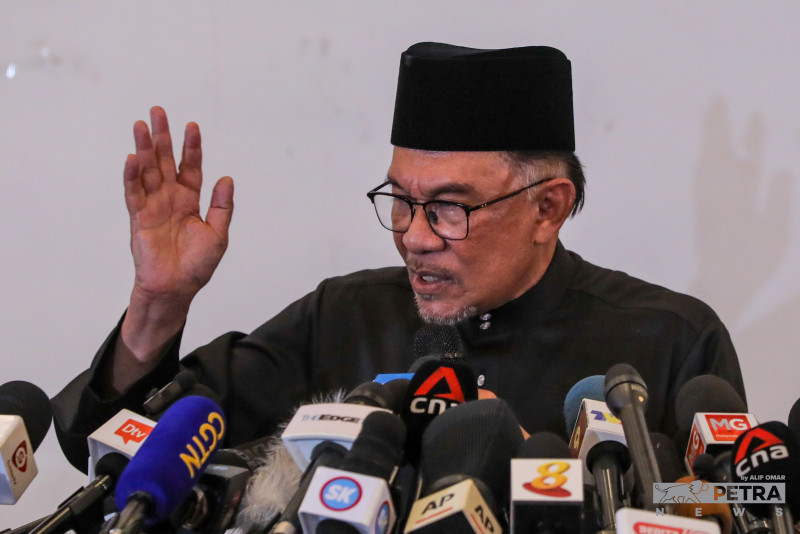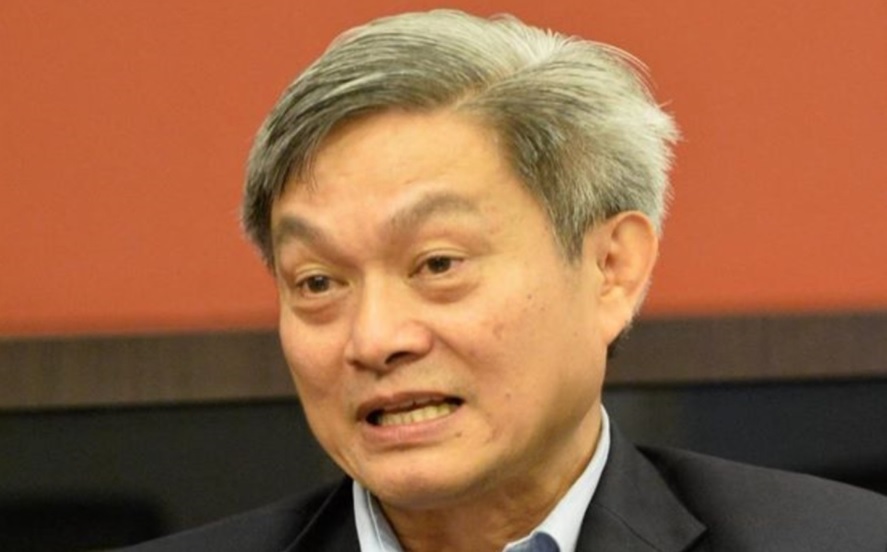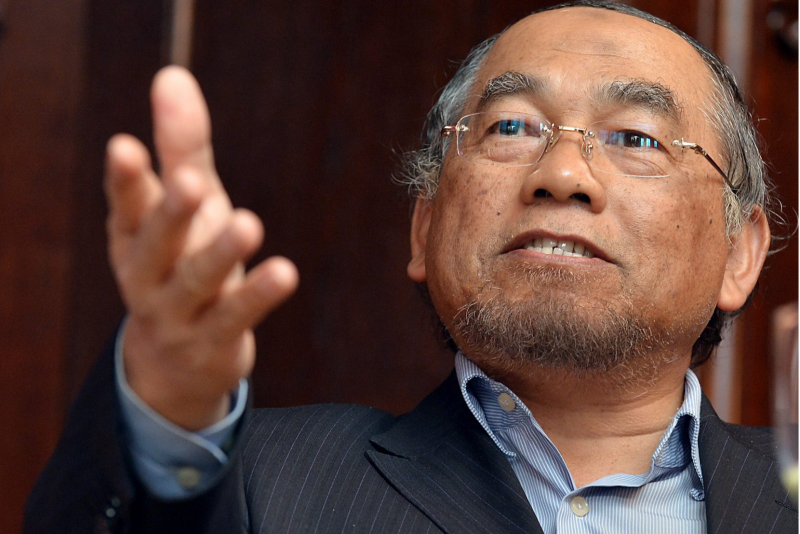
Cut subsidies? Return of GST? Anwar set to face ‘unpopular’ economic decisions
He takes over nation’s reins at time of great instability, public frustration

One challenge for Datuk Seri Anwar Ibrahim’s government will come in the form of increasing its tax revenue, which could see the reintroduction of the goods and services tax. – ALIF OMAR/The Vibes pic, November 29, 2022
KUALA LUMPUR – Freshly installed Prime Minister Datuk Seri Anwar Ibrahim has his work cut out for him as he takes over the reins of the nation at a time of great economic instability and an increasingly frustrated citizenry.
With Parliament set to have its first sitting on December 19 amid the backdrop of a looming global recession, economists are pointing out that the new prime minister may have to put in place “unpopular” economic policies for the immediate and long-term benefits of the people.
According to economist Yeah Kim Leng, the Pakatan Harapan leader should ready himself to ultimately rationalise subsidies by introducing more targeted subsidies, a move that would greatly reduce the government’s fiscal burden.
“(Anwar) will have to strike a balance between gradually rolling back subsidies and avoiding a spike in the price of goods and our inflation rate,” the Sunway University Business School’s professor of economics told The Vibes.
Recommending that the subsidy cutbacks be done gradually, rather than an all-out removal at one go, Yeah stressed that by spending government funds more productively, the nation stands to derive greater economic good.
“From an economic perspective, supporting subsidies for all (instead of targeted subsidies) is a misallocation of resources,” he said.
“Rationalising subsidies could potentially be a politically unpopular move, but citizens must be educated to see that while the reform might inflict short-term pain, they are sure to enjoy long-term benefits through improved government spending.”
KUALA LUMPUR – Freshly installed Prime Minister Datuk Seri Anwar Ibrahim has his work cut out for him as he takes over the reins of the nation at a time of great economic instability and an increasingly frustrated citizenry.
With Parliament set to have its first sitting on December 19 amid the backdrop of a looming global recession, economists are pointing out that the new prime minister may have to put in place “unpopular” economic policies for the immediate and long-term benefits of the people.
According to economist Yeah Kim Leng, the Pakatan Harapan leader should ready himself to ultimately rationalise subsidies by introducing more targeted subsidies, a move that would greatly reduce the government’s fiscal burden.
“(Anwar) will have to strike a balance between gradually rolling back subsidies and avoiding a spike in the price of goods and our inflation rate,” the Sunway University Business School’s professor of economics told The Vibes.
Recommending that the subsidy cutbacks be done gradually, rather than an all-out removal at one go, Yeah stressed that by spending government funds more productively, the nation stands to derive greater economic good.
“From an economic perspective, supporting subsidies for all (instead of targeted subsidies) is a misallocation of resources,” he said.
“Rationalising subsidies could potentially be a politically unpopular move, but citizens must be educated to see that while the reform might inflict short-term pain, they are sure to enjoy long-term benefits through improved government spending.”

According to economist Yeah Kim Leng (pic), Datuk Seri Anwar Ibrahim should ready himself to ultimately rationalise subsidies by introducing more targeted subsidies, a move that would greatly reduce the government’s fiscal burden. – Bernama pic, November 29, 2022
Yeah’s assertion that targeted fuel subsidies will most impact the government’s endeavour to reduce its fiscal burden is backed by outgoing finance minister Datuk Seri Tengku Zafrul Tangku Abdul Aziz, who stated in May that petrol subsidies alone are likely to reach a whopping RM30 billion amid a spike in crude oil prices.
Tengku Zafrul had also said that Malaysia is expected to fork out higher subsidies to the tune of RM71 billion this year, doubling the RM30 billion dished out last year.
Compromise within unity government on GST
Besides that, Yeah said that another challenge for Anwar’s government will come in the form of increasing its tax revenue, which could see the reintroduction of the goods and services tax (GST).
While the PH administration had previously zero-rated the tax from its original 6% in 2018 in favour of the current sales and services tax (SST), Yeah did not deny the “unlikely” possibility of the GST charges being reactivated since Putrajaya is now ruled by a unity government.
Because of the unity government, there could be compromises among some coalitions to push the envelope in terms of policy conversion (where it is) jointly agreed that the GST should be implemented again in a way where inflation spikes can be avoided,” he said.
However, he stressed that with an upcoming global recession, attention should instead be focused on more urgent economic measures, such as the broadening of the SST base to increase the overall revenue derived by the government through direct and indirect taxes.
“The economy for the remainder of this year is expected to perform well, but with a worldwide economic downturn expected to take place next year, it would be easier to implement changes in our tax regime once inflation has been stabilised,” he said.
“Any major changes (to our taxation system) that will cause a dampening effect on the economy should be put on hold until we are able to create greater feasibility in our economic conditions.”
The SST generated RM26.7 billion in revenue in 2020 and RM27.9 billion in 2021, while the GST, an unpopular consumption tax introduced in 2015, garnered RM44 billion in 2017.
The GST is a consumption tax and levied on most transactions in the production process – applying to about 60% of goods and services under the consumer price index compared to 38% under the SST.
Yeah’s assertion that targeted fuel subsidies will most impact the government’s endeavour to reduce its fiscal burden is backed by outgoing finance minister Datuk Seri Tengku Zafrul Tangku Abdul Aziz, who stated in May that petrol subsidies alone are likely to reach a whopping RM30 billion amid a spike in crude oil prices.
Tengku Zafrul had also said that Malaysia is expected to fork out higher subsidies to the tune of RM71 billion this year, doubling the RM30 billion dished out last year.
Compromise within unity government on GST
Besides that, Yeah said that another challenge for Anwar’s government will come in the form of increasing its tax revenue, which could see the reintroduction of the goods and services tax (GST).
While the PH administration had previously zero-rated the tax from its original 6% in 2018 in favour of the current sales and services tax (SST), Yeah did not deny the “unlikely” possibility of the GST charges being reactivated since Putrajaya is now ruled by a unity government.
Because of the unity government, there could be compromises among some coalitions to push the envelope in terms of policy conversion (where it is) jointly agreed that the GST should be implemented again in a way where inflation spikes can be avoided,” he said.
However, he stressed that with an upcoming global recession, attention should instead be focused on more urgent economic measures, such as the broadening of the SST base to increase the overall revenue derived by the government through direct and indirect taxes.
“The economy for the remainder of this year is expected to perform well, but with a worldwide economic downturn expected to take place next year, it would be easier to implement changes in our tax regime once inflation has been stabilised,” he said.
“Any major changes (to our taxation system) that will cause a dampening effect on the economy should be put on hold until we are able to create greater feasibility in our economic conditions.”
The SST generated RM26.7 billion in revenue in 2020 and RM27.9 billion in 2021, while the GST, an unpopular consumption tax introduced in 2015, garnered RM44 billion in 2017.
The GST is a consumption tax and levied on most transactions in the production process – applying to about 60% of goods and services under the consumer price index compared to 38% under the SST.

Barjoyai Bardai believes that if the goods and services tax is revived, it would be far-fetched to expect it to happen anytime soon. – The Vibes pic, November 29, 2022
Thinking behind NEP must be ‘liberalised’
Yeah’s views were echoed by Universiti Tun Abdul Razak academic Barjoyai Bardai, who opined that if the GST is revived, it would be far-fetched to expect it to happen anytime soon.
“(Anwar) is under pressure to bring back the GST but this will go against the philosophy of PH. (If the GST is brought back), it might only happen next year,” he said.
“The government now must think of a tax system that can generate revenue for the government. If it is able to cut government expenditure across the board, then they might not even need to introduce a new tax (system),” he said.
Similarly, he also highlighted that subsidy rationalisation is “an important agenda that should be done painstakingly” as the government attempts to save money but also take care of the people.
Meanwhile, veteran economist Tan Sri Ramon Navaratnam said that in order for the economy to perform fairly and properly towards all Malaysians, regardless of race, the New Economic Policy (NEP) should be revised, or even replaced.
(The NEP) is restricting growth and keeping prices high because of inadequate competition, while providing a sense of disunity and alienation. The whole thinking behind the NEP has to be liberalised,” he said.
“There must be some radical reformative thinking in the new government, otherwise we will just be doing more of the same (policies) which will not be helpful for economic progress.”
Calls for the NEP to be reviewed have long been issued, including by fellow long-time economist Tan Sri Kamal Salih who called for the abolishment of the NEP and to replace it with a needs-based policy to overhaul the economy.
On the other hand, senior fellow at the Iseas-Yusof Ishak Institute and economist Lee Hwok Aun asserted that the government should find new ways to carry out universalist and group-targeted policies instead of trying to completely replace the “race-based” NEP.
Noting that a balance should be struck between race-based policies and need-based policies, he said the NEP’s two prongs – poverty eradication irrespective of race, and restructuring society based on principles of equality and fairness – are still relevant, but the country’s overall perspective and views need to be modified and updated. – The Vibes, November 29, 2022
Thinking behind NEP must be ‘liberalised’
Yeah’s views were echoed by Universiti Tun Abdul Razak academic Barjoyai Bardai, who opined that if the GST is revived, it would be far-fetched to expect it to happen anytime soon.
“(Anwar) is under pressure to bring back the GST but this will go against the philosophy of PH. (If the GST is brought back), it might only happen next year,” he said.
“The government now must think of a tax system that can generate revenue for the government. If it is able to cut government expenditure across the board, then they might not even need to introduce a new tax (system),” he said.
Similarly, he also highlighted that subsidy rationalisation is “an important agenda that should be done painstakingly” as the government attempts to save money but also take care of the people.
Meanwhile, veteran economist Tan Sri Ramon Navaratnam said that in order for the economy to perform fairly and properly towards all Malaysians, regardless of race, the New Economic Policy (NEP) should be revised, or even replaced.
(The NEP) is restricting growth and keeping prices high because of inadequate competition, while providing a sense of disunity and alienation. The whole thinking behind the NEP has to be liberalised,” he said.
“There must be some radical reformative thinking in the new government, otherwise we will just be doing more of the same (policies) which will not be helpful for economic progress.”
Calls for the NEP to be reviewed have long been issued, including by fellow long-time economist Tan Sri Kamal Salih who called for the abolishment of the NEP and to replace it with a needs-based policy to overhaul the economy.
On the other hand, senior fellow at the Iseas-Yusof Ishak Institute and economist Lee Hwok Aun asserted that the government should find new ways to carry out universalist and group-targeted policies instead of trying to completely replace the “race-based” NEP.
Noting that a balance should be struck between race-based policies and need-based policies, he said the NEP’s two prongs – poverty eradication irrespective of race, and restructuring society based on principles of equality and fairness – are still relevant, but the country’s overall perspective and views need to be modified and updated. – The Vibes, November 29, 2022
ABOLISH TOL - TUNGGU APA??...USE TABUNG HAJI $50 BILLION BAIL OUT TO PAY/BAYAR.....90% RAKYAT MALAYSIA SETUJU...OTHER SAVING MEASURE ARE RUBBISH AND TOKENISTIC!!
ReplyDelete